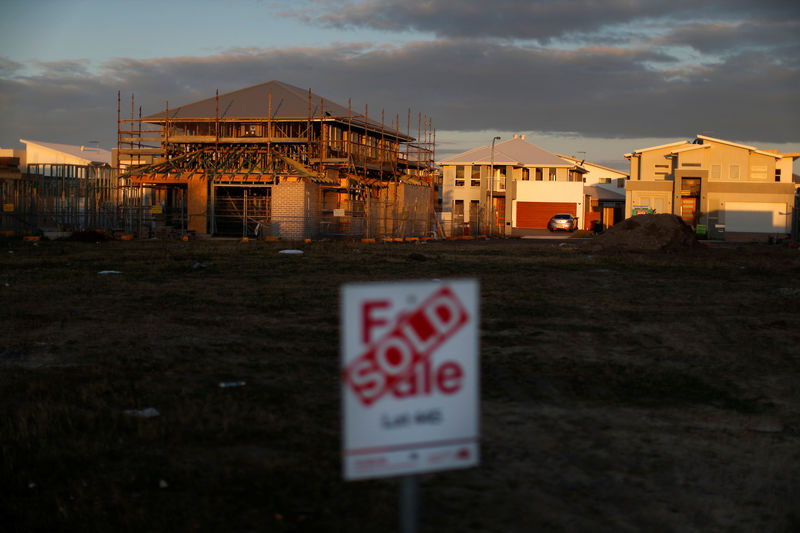SYDNEY, July 2 (Reuters) - Home prices across Australia's major cities slipped for a ninth straight month in June as tighter lending standards stifled investment demand in Sydney and Melbourne, a trend that seems unlikely to reverse anytime soon.
Property consultant CoreLogic said on Monday its index of home prices for the combined capital cities fell 0.3 percent in June, after a 0.1 percent dip in May.
That left capital city prices down 1.6 percent for the year. Regional prices fared a little better with annual growth of 2.2 percent, leaving prices for the combined markets down 0.8 percent on June last year.
Along with tougher rules from regulators, lenders have also been raising borrowing standards amid revelations of widespread malpractice on loans and financial advice among several major institutions.
The result has been a marked pullback in demand in the once red-hot markets of Sydney and Melbourne, ending a boom in prices that ran for five years.
"Tighter finance conditions and less investment activity have been the primary drivers of weaker housing market conditions and we don't see either of these factors relaxing over the second half of 2018," said CoreLogic Head of Research Tim Lawless.
Sydney and Melbourne comprise about 60 percent of Australia's housing market by value and 40 percent by number.
Prices in Sydney eased 0.3 percent in June, leaving values down 4.5 percent on the year. Home prices had been growing by more than 20 percent a year at the peak of the boom.
Melbourne saw a drop of 0.4 percent in the month, while annual growth slowed to 1.0 percent.
Markets were mixed in other cities with best performer Hobart in Tasmania clocking an annual gain of 12.7 percent.
Lawless noted that despite the latest declines, values nationally were still up 32 percent over the past five years.
The slowdown in the major cities follows a tightening in standards on investment and interest-only loans, leading banks to raise the interest charged on some mortgage products.
The Reserve Bank of Australia has long been concerned that debt-fuelled speculation in property could ultimately hurt both consumers and banks.
